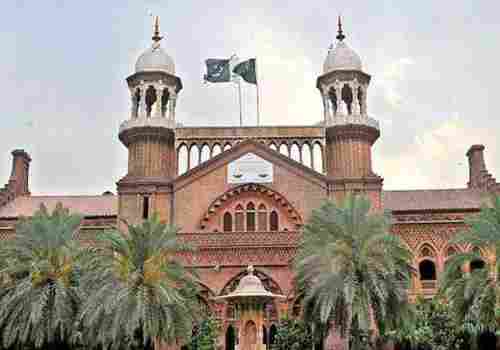LAHORE: The Lahore High Court on Monday directed all educational institutions in Punjab to remain closed on Saturdays until the end of January to address smog concerns, as the air quality in the province continues to be unhealthy.
A day prior, the interim Punjab government had mandated face masks for residents in 10 districts when leaving their homes. It had previously imposed a limited lockdown to address the escalating air pollution levels.
Despite these actions, the air quality remains a concern, with persistent smog in Lahore and other districts.
As per the Air Quality Index, recorded at 11 am today, Lahore’s AQI stood at 293, categorized as unhealthy. PM2.5, a fine particulate matter harmful to the lungs and bloodstream, was the primary pollutant.
In a written order related to environmental petitions, the LHC mandated a notification specifying “closure of public schools, colleges, universities, and all educational institutions on each Saturday until January 2024.”
The court also directed the government to consider implementing two days of work from home in the private sector weekly in Punjab.
Additionally, the court acknowledged reports from the Lahore Development Authority, Punjab Transport Company, and Parks and Horticulture Authority regarding smog mitigation measures. It instructed these departments to submit further reports at the next hearing.
The order also highlighted that certain industrial units, initially sealed, were found operational. The LHC directed reports on prosecuting these units and identifying the relevant officials from the Environment Protection Department responsible for their oversight.
The court emphasized the involvement of deputy commissioners from Hafizabad, Gujranwala, and Sheikhupura in adhering to the court’s directives and taking necessary actions accordingly.
The hearing adjourned until November 22, with the LHC outlining that actions would be taken against officers failing to comply with departmental responsibilities.
Smog results from various factors like low wind speed, high humidity, temperature inversion, transboundary pollution, and local emissions. It impacts visibility, causes traffic accidents, and poses significant health risks to residents, especially those with respiratory issues, children, elderly, and pregnant women. Common symptoms include coughing, wheezing, chest pain, eye irritation, headache, nausea, and fatigue.
Experts recommend precautionary measures like wearing masks, using air purifiers, avoiding outdoor activities during peak hours, and seeking medical help if experiencing discomfort.
(Islamabad51_Newsdesk)














